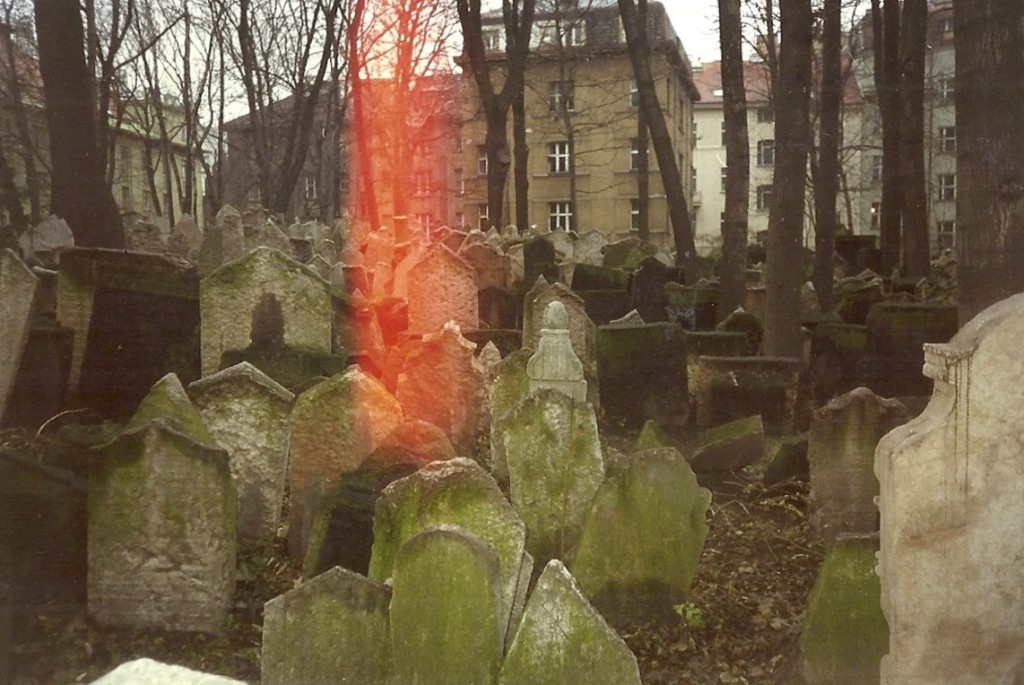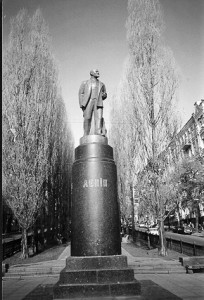
BLACK LIVES MATTER
What’s this headline possibly have to do with Eastern Europe? First there’s the fact that when an American writes about someplace else, more often than not he or she is implicitly, if not explicitly, comparing and contrasting it with the United States. Treatment of minorities and criminal suspects are sometimes overlapping issues that every society must deal with and the manner in which different societies do so are as legitimate of an area for comparison as anything.
Secondly, it no longer strikes me as mere coincidence that I spent six years in Washington, D.C. as an attorney for the indigent immersed in a culture in some respects every bit as foreign as post-communist Eastern Europe would later prove. I wonder if I would have been so open to Eastern Europe if I had not previously been exposed to a culture turned upside down by a notorious cocaine and crime epidemic.
The following is an article I penned a decade ago:
Washington, D.C.
The only white people D.C’s black poor have contact with on a regular basis are social workers, cops, and once in a while an oddball defense attorney like myself. When I showed up at an all-black school (virtually all the nation’s capital’s schools are all-black) the kids on the school playground started shouting at me, asking to see my gun. They took me for a cop. What else could I be? They said they knew where I kept it: under my sport’s jacket stuck into the back of my pants. I turned around and pulled up my jacket to reveal that I didn’t have a gun. They seemed genuinely perplexed.
The next day I was in one of the roughest projects in Northeast D.C. when suddenly out of nowhere cops were swarming all around me. They grabbed whoever was out and about at the time and shook them down. No one seemed the least surprised. There was no apparent ‘probable cause’ or ‘articulable suspicion’ for these actions as we learned was legally necessary in law school, and later rotely muttered in criminal court at Suppression Hearings, usually to no avail. Where was the evening news team when you need them? Where was the ACLU? But middle class rights and legal niceties didn’t much apply here. A cop approached me and asked what I was doing in the neighborhood. I told him I was a defense attorney here to see a client. He seemed to find this response satisfactory, not to mention amusing, and wondered off to find someone else to roust.
One evening I was at a McDonald’s with one of my clients, an 10-year old black girl. I was her guardian-ad-litem and I periodically checked in with her at her foster parents’ house and took her out for some one-on-one time. A man came over to me and asked what was up with me and the girl. I wasn’t offended. He didn’t mean any harm. I was only too happy to explain the situation and was frankly glad someone was paying attention.
Occasionally I shot a few baskets with a teenage client at some neighborhood park. I’d been a pretty good player in high school—for a white boy as the saying goes—though out of shape and practice, not to mention fast approaching middle age. As it turned out I was better than any of the kids I played with. The fact is that most black kids aren’t any good at basketball and most can’t jump either, stereotypes to the contrary.
The black kids I knew in D.C were not prejudiced. They just weren’t. They didn’t distinguish much between establishment blacks and establishment whites. They didn’t hate either one of them, but that’s not to say there was necessarily a lot of love lost amongst them either. Once I asked an 11-year old who his previous lawyer had been, as it is often useful to talk to previous lawyers to get insights beyond the facts of the case. He told me he’d had a woman lawyer the last time he was in court, but he couldn’t remember her name. Trying to narrow things down a little, I asked if she were black or white. He didn’t directly say she was either, rather with all the innocence and purity only a child could muster her responded that “[s]he was your color.” I looked down at my hand and contemplated my color: even in the pale of winter a sort of beige, nearly as distant from white as black.
On weekends I’d often call on my clients, whether they were in jail, at home, or hanging around on the streets. One client happened to be in the hospital recovering from a stab wound. I had it in the back of my mind that I would go to the hospital this particular Saturday to check up on him, but I got involved in other things and never got around to it. Watching the evening news, I saw a report about a couple gun-wielding kids who had busted out their wounded friend from the hospital earlier that day. Safe to say, I was glad I hadn’t been there. D.C. was like the Wild West during Ronald Reagan’s go-go 80s; crazy stuff like this was happening all the time.
Sometimes my clients didn’t show up for their court appearances. More than once this was because my client had been gunned down. I’d become particularly close to Chris and his mom, and when I heard he’d been killed, I didn’t know what to do. I’d been to Chris’s home many times, preparing our case, sitting at the kitchen table with my papers strewn about as his siblings and friends came and went. Chris and his mom clearly loved each other. He joked with her all the time, sometimes saying outrageous stuff to just get her goat. His mom would shake her head and roll her eyes, but with a twinkle in her eye she’d smile because she knew he didn’t really mean what he said. The most surprising thing about clients like Chris was—despite the fact that they lived in a drug infested violent world—they were not all that different from what me and my solidly middle class had been like as teenagers. I don’t mean this in some corny well-meaning, liberal-ass way. I say it simply because it’s undeniably true. Of course, I had some friends that got into trouble with the law when they were teenagers. Some were from the wrong side of the tracks, some from more privileged backgrounds. No matter what the background though, when I was a kid it was no big deal to screw up and be involved in the juvenile justice system. It was assumed that kids would grow out of their problems, and for the most part they did. The world had become a less forgiving place today. Screwing up has more serious consequences. As bad as things were in D.C., so long as they stayed alive at least the courts still believed in the rehabilitation of minors. By the mid-90s rehabilitation of minors in many parts of the country had become a cruel joke. Increasingly it was about punishment and retribution and punishment and retribution only.
During six years I never had a white client in Washington, but for a young Iranian woman who was picked up in her evening gown in front of a Georgetown disco with a group of young people who happened to have a trunk load of guns in their car. Although she spent an unpleasant weekend in jail, she was never arraigned, never charged with a crime, so she didn’t count as a real client. During this time I represented only one juvenile client who fit the stereotype of being tough and hardened beyond his years. He was resigned to doing time, so he pled guilty and thanked me for my “help.” More common were the kids who broke down in tears in lock-up, though if you read about them in the paper you’d have gotten the impression they were tough as nails and without remorse.
In Washington I was always struck by how well blacks and whites got along, given half a chance. Most of the witnesses I called upon in the city’s projects were so surprised to see a white guy come knocking on their door, that they were disarmed and willing to answer questions and chat about anything and everything under the sun. I remember once after the first day of trial, I was blowing off steam by shadow boxing, and horsing around with a 17 year old witness. The kid probably weighed 250 pounds and if a white person were to come across him on the streets of Washington, I can pretty much assure you that eye contact would have been avoided, much less pleasantries exchanged. As I’m goofing around with him, suddenly turns to me and blurts out in his baddest street jive: “You know, I could mess you up bad, man.” I did a quick double take, and thought for a moment that yea, I suppose he could. Then our eyes met, and we simultaneously cracked up.
Middle class Americans for the most part know don’t know any poor people, black or white, and consequently tend to believe they don’t really exist. The poor are everywhere, of course, and we bump right up against them in or city streets, even in small towns and hamlets, yet they are somehow invisible to us most of the time. When a talking head on the TV screen comes on and tells us about a Tsunami or Katrina, or just some local down on his luck sob story, for a moment, they’re no longer invisible. Americans consider themselves generous to a fault, and in a sense we are. We’re only too happy to donate to the nice people on the TV screen. Still, there is something disturbing about responding to the TV monitor this way, seeing only what we’re told to see.
Copyright © 2015 by David B. Brown


